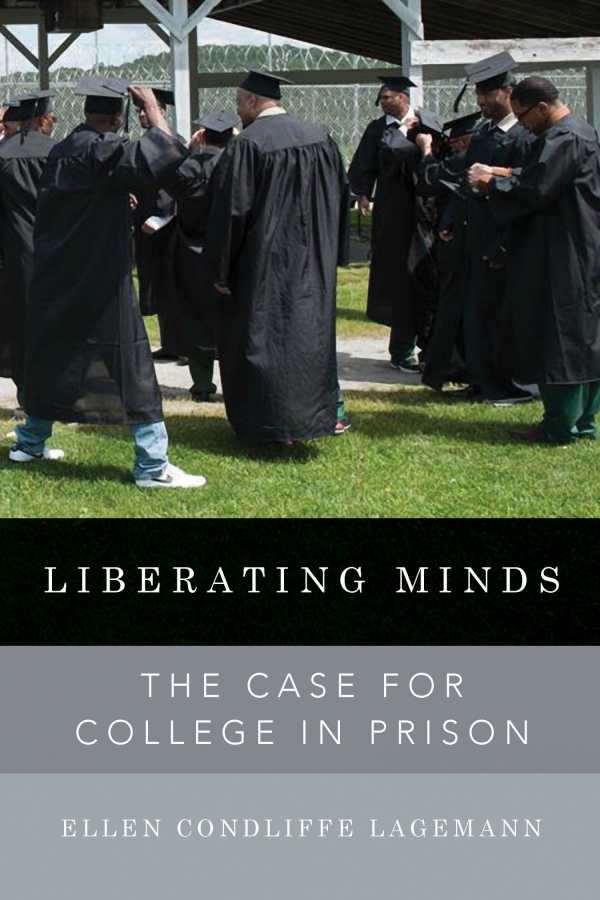Liberating Minds
The Case for College in Prison
Lagemann’s illuminating work argues that college prison programs have wide-ranging benefits for all.
In Liberating Minds, Ellen Condliffe Lagemann persuasively argues for more college opportunities in prisons. She details how the ripple effect of the small number of existing programs reverberates through prisoners’ families, their communities, and the larger society.
This book is timely, given the current reevaluation of decades of tough-on-crime laws that exploded prison populations and budgets. Lagemann’s case is neatly built; each chapter focuses on a different positive outcome of prison education, from dramatically lowered rates of recidivism and prison violence, to enhanced economic vitality and public safety. There are less tangible but no less important advantages for prisoners, too, like a reawakened sense of self-worth, civic duty, and love for learning; these are discussed in passionate terms and are illuminated with examples from personal interviews and class discussions.
Skillful writing displays the author’s academic and advocacy credentials. Arguments are thoughtful, analytical, and extensively documented, and prisoner profiles are passionate. Statements about how prison education is “enabling people to understand their competence as learners” are powerful. A concise chapter on American prison history and its swings between being punitive, redemptive, and rehabilitative also reinforces the need for a criminal justice system overhaul.
Some passages hit like a sock to the gut. Reading of prison life—daily monotony, loneliness, and need for constant vigilance against physical and verbal threats—is tough and contrasts with the respite and hopefulness for the future represented by the classroom. It is illuminating to read about the lasting devastation that incarceration has on families, from stigmatization of their children to financial ruin from many mandated prison expenses.
Lagemann’s book acknowledges that the expansion and public financing of college prison programs is a tough sell when all college students face spiraling higher-education costs and debt. However, her layering of fiscal, political, and moral reasons why such reform is imperative is clearly articulated. College prison programs may be liberating minds one by one.
Reviewed by
Rachel Jagareski
Disclosure: This article is not an endorsement, but a review. The publisher of this book provided free copies of the book to have their book reviewed by a professional reviewer. No fee was paid by the publisher for this review. Foreword Reviews only recommends books that we love. Foreword Magazine, Inc. is disclosing this in accordance with the Federal Trade Commission’s 16 CFR, Part 255.

